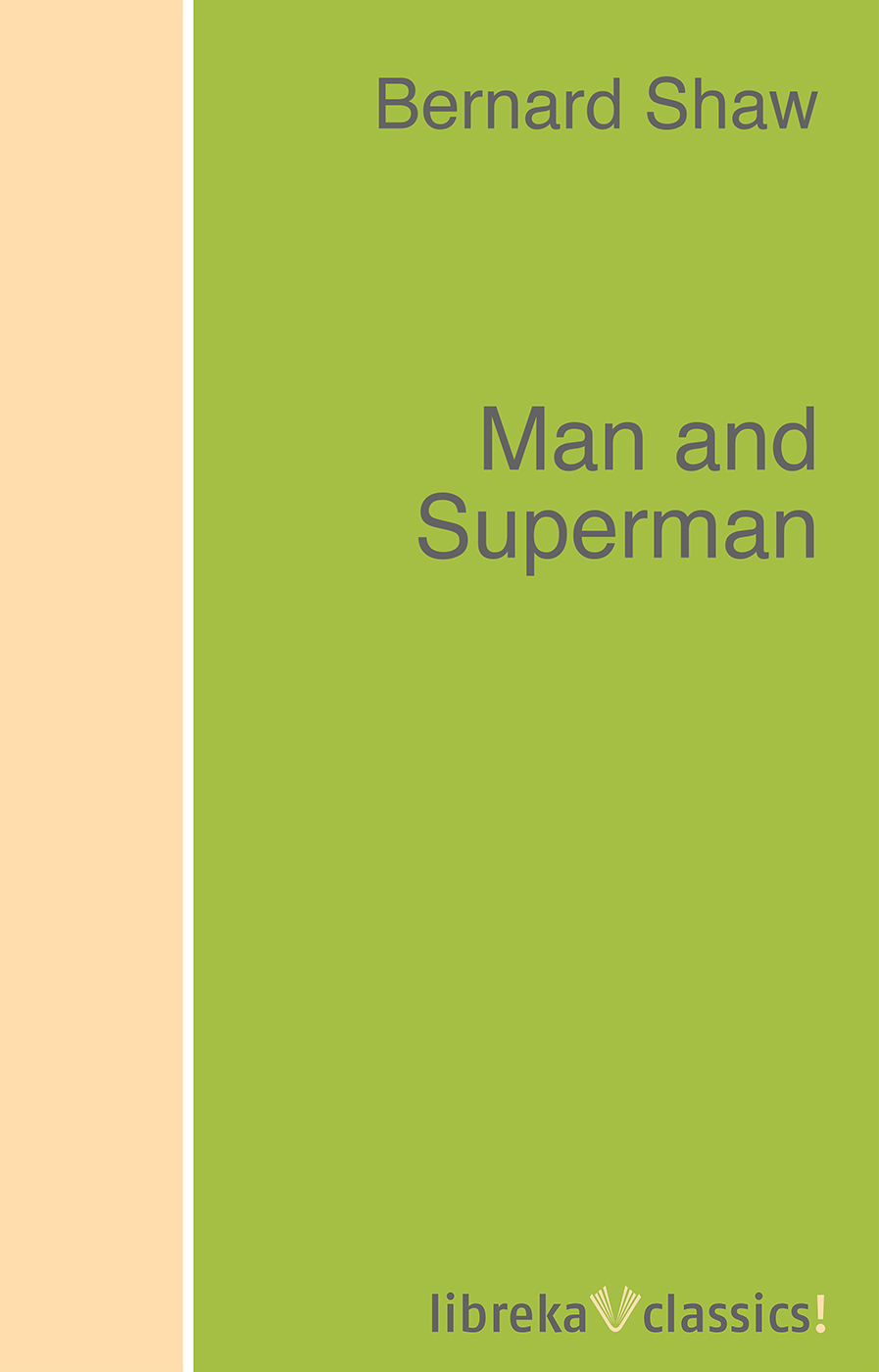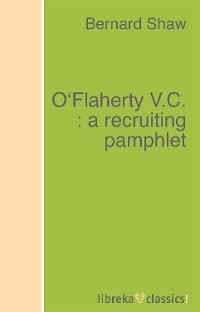
Полная версия
Man and Superman


Titel: Man and Superman
von Augustus J. Thebaud, Charles Kingsley, Henry James, Thomas Hardy, Kate Douglas Smith Wiggin, Joseph Butler, John D. Barry, William Allan Neilson, Henry Rider Haggard, Rudolf Erich Raspe, Paul Heyse, Carl Russell Fish, Tom Taylor, Margaret Pedler, Homer, John Kendrick Bangs, John Burroughs, Juanita Helm Floyd, Maurice Liber, Anthony Trollope, William Morris, Mark Twain, Charles Dudley Warner, Thomas Hobbes, Winfried Honig, Albrecht Dürer, Militia of Mercy . Gift Book Committee, Ella Wheeler Wilcox, Andrew Lang, Katharine Pyle, Sir Samuel White Baker, Frederic William Moorman, the Younger Pliny, Samuel Butler, William Dean Howells, Harold MacGrath, Joseph Crosby Lincoln, Ralph Connor, Various, Oliver Wendell Holmes, Abraham Lincoln, John Galsworthy, Ian Maclaren, Charlotte Mary Yonge, Sir Owen Morgan Edwards, Robert J. C. Stead, Harold Bell Wright, Eleanor H. Porter, Richard Le Gallienne, Ann Ward Radcliffe, Mark Rutherford, John Bunyan, Artemus Ward, John Hanning Speke, James Fenimore Cooper, Edmund Burke, Sir Arthur Conan Doyle, Francis Bacon, Gisela Engel, Edward Samuel Corwin, Washington Irving, Rafael Sabatini, Emma Lazarus, Bishop of Hippo Saint Augustine, Christian Friedrich Hebbel, Adam Smith, Upton Sinclair, Michael Earls, John Hargrave, Charles Hose, William McDougall, Albert Ernest Jenks, marquis de Jean-François-Albert du Pouget Nadaillac, Robert Sewell, 16th cent. Fernão Nunes, 16th cent. Domingos Paes, Inez Haynes Gillmore, Charles Warren Stoddard, Will Irwin, Vivia Hemphill, J. Hampton Moore, Philip Gibbs, Sir Richard Steele, Joseph Addison, L. Mühlbach, Leroy Scott, Mrs. Henry Wood, Ottilie A. Liljencrantz, Algernon Charles Swinburne, Thomas Bulfinch, Bernard Shaw
ISBN 978-3-7429-3213-6
Alle Rechte vorbehalten.
Es ist ohne vorherige schriftliche Erlaubnis nicht gestattet, dieses Werk im Ganzen oder in Teilen zu vervielfältigen oder zu veröffentlichen.
MAN AND SUPERMAN
A COMEDY AND A PHILOSOPHY
By Bernard Shaw
Contents
EPISTLE DEDICATORY TO ARTHUR BINGHAM WALKLEY
ACT I ACT II ACT III ACT IVEPISTLE DEDICATORY TO ARTHUR BINGHAM WALKLEY
My dear Walkley:
You once asked me why I did not write a Don Juan play. The levity with which you assumed this frightful responsibility has probably by this time enabled you to forget it; but the day of reckoning has arrived: here is your play! I say your play, because qui facit per alium facit per se. Its profits, like its labor, belong to me: its morals, its manners, its philosophy, its influence on the young, are for you to justify. You were of mature age when you made the suggestion; and you knew your man. It is hardly fifteen years since, as twin pioneers of the New Journalism of that time, we two, cradled in the same new sheets, made an epoch in the criticism of the theatre and the opera house by making it a pretext for a propaganda of our own views of life. So you cannot plead ignorance of the character of the force you set in motion. You meant me to epater le bourgeois; and if he protests, I hereby refer him to you as the accountable party.
I warn you that if you attempt to repudiate your responsibility, I shall suspect you of finding the play too decorous for your taste. The fifteen years have made me older and graver. In you I can detect no such becoming change. Your levities and audacities are like the loves and comforts prayed for by Desdemona: they increase, even as your days do grow. No mere pioneering journal dares meddle with them now: the stately Times itself is alone sufficiently above suspicion to act as your chaperone; and even the Times must sometimes thank its stars that new plays are not produced every day, since after each such event its gravity is compromised, its platitude turned to epigram, its portentousness to wit, its propriety to elegance, and even its decorum into naughtiness by criticisms which the traditions of the paper do not allow you to sign at the end, but which you take care to sign with the most extravagant flourishes between the lines. I am not sure that this is not a portent of Revolution. In eighteenth century France the end was at hand when men bought the Encyclopedia and found Diderot there. When I buy the Times and find you there, my prophetic ear catches a rattle of twentieth century tumbrils.
However, that is not my present anxiety. The question is, will you not be disappointed with a Don Juan play in which not one of that hero's mille e tre adventures is brought upon the stage? To propitiate you, let me explain myself. You will retort that I never do anything else: it is your favorite jibe at me that what I call drama is nothing but explanation. But you must not expect me to adopt your inexplicable, fantastic, petulant, fastidious ways: you must take me as I am, a reasonable, patient, consistent, apologetic, laborious person, with the temperament of a schoolmaster and the pursuits of a vestryman. No doubt that literary knack of mine which happens to amuse the British public distracts attention from my character; but the character is there none the less, solid as bricks. I have a conscience; and conscience is always anxiously explanatory. You, on the contrary, feel that a man who discusses his conscience is much like a woman who discusses her modesty. The only moral force you condescend to parade is the force of your wit: the only demand you make in public is the demand of your artistic temperament for symmetry, elegance, style, grace, refinement, and the cleanliness which comes next to godliness if not before it. But my conscience is the genuine pulpit article: it annoys me to see people comfortable when they ought to be uncomfortable; and I insist on making them think in order to bring them to conviction of sin. If you don't like my preaching you must lump it. I really cannot help it.
In the preface to my Plays for Puritans I explained the predicament of our contemporary English drama, forced to deal almost exclusively with cases of sexual attraction, and yet forbidden to exhibit the incidents of that attraction or even to discuss its nature. Your suggestion that I should write a Don Juan play was virtually a challenge to me to treat this subject myself dramatically. The challenge was difficult enough to be worth accepting, because, when you come to think of it, though we have plenty of dramas with heroes and heroines who are in love and must accordingly marry or perish at the end of the play, or about people whose relations with one another have been complicated by the marriage laws, not to mention the looser sort of plays which trade on the tradition that illicit love affairs are at once vicious and delightful, we have no modern English plays in which the natural attraction of the sexes for one another is made the mainspring of the action. That is why we insist on beauty in our performers, differing herein from the countries our friend William Archer holds up as examples of seriousness to our childish theatres. There the Juliets and Isoldes, the Romeos and Tristans, might be our mothers and fathers. Not so the English actress. The heroine she impersonates is not allowed to discuss the elemental relations of men and women: all her romantic twaddle about novelet-made love, all her purely legal dilemmas as to whether she was married or "betrayed," quite miss our hearts and worry our minds. To console ourselves we must just look at her. We do so; and her beauty feeds our starving emotions. Sometimes we grumble ungallantly at the lady because she does not act as well as she looks. But in a drama which, with all its preoccupation with sex, is really void of sexual interest, good looks are more desired than histrionic skill.
Let me press this point on you, since you are too clever to raise the fool's cry of paradox whenever I take hold of a stick by the right instead of the wrong end. Why are our occasional attempts to deal with the sex problem on the stage so repulsive and dreary that even those who are most determined that sex questions shall be held open and their discussion kept free, cannot pretend to relish these joyless attempts at social sanitation? Is it not because at bottom they are utterly sexless? What is the usual formula for such plays? A woman has, on some past occasion, been brought into conflict with the law which regulates the relations of the sexes. A man, by falling in love with her, or marrying her, is brought into conflict with the social convention which discountenances the woman. Now the conflicts of individuals with law and convention can be dramatized like all other human conflicts; but they are purely judicial; and the fact that we are much more curious about the suppressed relations between the man and the woman than about the relations between both and our courts of law and private juries of matrons, produces that sensation of evasion, of dissatisfaction, of fundamental irrelevance, of shallowness, of useless disagreeableness, of total failure to edify and partial failure to interest, which is as familiar to you in the theatres as it was to me when I, too, frequented those uncomfortable buildings, and found our popular playwrights in the mind to (as they thought) emulate Ibsen.
I take it that when you asked me for a Don Juan play you did not want that sort of thing. Nobody does: the successes such plays sometimes obtain are due to the incidental conventional melodrama with which the experienced popular author instinctively saves himself from failure. But what did you want? Owing to your unfortunate habit—you now, I hope, feel its inconvenience—of not explaining yourself, I have had to discover this for myself. First, then, I have had to ask myself, what is a Don Juan? Vulgarly, a libertine. But your dislike of vulgarity is pushed to the length of a defect (universality of character is impossible without a share of vulgarity); and even if you could acquire the taste, you would find yourself overfed from ordinary sources without troubling me. So I took it that you demanded a Don Juan in the philosophic sense.
Philosophically, Don Juan is a man who, though gifted enough to be exceptionally capable of distinguishing between good and evil, follows his own instincts without regard to the common statute, or canon law; and therefore, whilst gaining the ardent sympathy of our rebellious instincts (which are flattered by the brilliancies with which Don Juan associates them) finds himself in mortal conflict with existing institutions, and defends himself by fraud and farce as unscrupulously as a farmer defends his crops by the same means against vermin. The prototypic Don Juan, invented early in the XVI century by a Spanish monk, was presented, according to the ideas of that time, as the enemy of God, the approach of whose vengeance is felt throughout the drama, growing in menace from minute to minute. No anxiety is caused on Don Juan's account by any minor antagonist: he easily eludes the police, temporal and spiritual; and when an indignant father seeks private redress with the sword, Don Juan kills him without an effort. Not until the slain father returns from heaven as the agent of God, in the form of his own statue, does he prevail against his slayer and cast him into hell. The moral is a monkish one: repent and reform now; for to-morrow it may be too late. This is really the only point on which Don Juan is sceptical; for he is a devout believer in an ultimate hell, and risks damnation only because, as he is young, it seems so far off that repentance can be postponed until he has amused himself to his heart's content.
But the lesson intended by an author is hardly ever the lesson the world chooses to learn from his book. What attracts and impresses us in El Burlador de Sevilla is not the immediate urgency of repentance, but the heroism of daring to be the enemy of God. From Prometheus to my own Devil's Disciple, such enemies have always been popular. Don Juan became such a pet that the world could not bear his damnation. It reconciled him sentimentally to God in a second version, and clamored for his canonization for a whole century, thus treating him as English journalism has treated that comic foe of the gods, Punch. Moliere's Don Juan casts back to the original in point of impenitence; but in piety he falls off greatly. True, he also proposes to repent; but in what terms? "Oui, ma foi! il faut s'amender. Encore vingt ou trente ans de cette vie-ci, et puis nous songerons a nous." After Moliere comes the artist-enchanter, the master of masters, Mozart, who reveals the hero's spirit in magical harmonies, elfin tones, and elate darting rhythms as of summer lightning made audible. Here you have freedom in love and in morality mocking exquisitely at slavery to them, and interesting you, attracting you, tempting you, inexplicably forcing you to range the hero with his enemy the statue on a transcendant plane, leaving the prudish daughter and her priggish lover on a crockery shelf below to live piously ever after.
After these completed works Byron's fragment does not count for much philosophically. Our vagabond libertines are no more interesting from that point of view than the sailor who has a wife in every port, and Byron's hero is, after all, only a vagabond libertine. And he is dumb: he does not discuss himself with a Sganarelle-Leporello or with the fathers or brothers of his mistresses: he does not even, like Casanova, tell his own story. In fact he is not a true Don Juan at all; for he is no more an enemy of God than any romantic and adventurous young sower of wild oats. Had you and I been in his place at his age, who knows whether we might not have done as he did, unless indeed your fastidiousness had saved you from the empress Catherine. Byron was as little of a philosopher as Peter the Great: both were instances of that rare and useful, but unedifying variation, an energetic genius born without the prejudices or superstitions of his contemporaries. The resultant unscrupulous freedom of thought made Byron a greater poet than Wordsworth just as it made Peter a greater king than George III; but as it was, after all, only a negative qualification, it did not prevent Peter from being an appalling blackguard and an arrant poltroon, nor did it enable Byron to become a religious force like Shelley. Let us, then, leave Byron's Don Juan out of account. Mozart's is the last of the true Don Juans; for by the time he was of age, his cousin Faust had, in the hands of Goethe, taken his place and carried both his warfare and his reconciliation with the gods far beyond mere lovemaking into politics, high art, schemes for reclaiming new continents from the ocean, and recognition of an eternal womanly principle in the universe. Goethe's Faust and Mozart's Don Juan were the last words of the XVIII century on the subject; and by the time the polite critics of the XIX century, ignoring William Blake as superficially as the XVIII had ignored Hogarth or the XVII Bunyan, had got past the Dickens-Macaulay Dumas-Guizot stage and the Stendhal-Meredith-Turgenieff stage, and were confronted with philosophic fiction by such pens as Ibsen's and Tolstoy's, Don Juan had changed his sex and become Dona Juana, breaking out of the Doll's House and asserting herself as an individual instead of a mere item in a moral pageant.
Now it is all very well for you at the beginning of the XX century to ask me for a Don Juan play; but you will see from the foregoing survey that Don Juan is a full century out of date for you and for me; and if there are millions of less literate people who are still in the eighteenth century, have they not Moliere and Mozart, upon whose art no human hand can improve? You would laugh at me if at this time of day I dealt in duels and ghosts and "womanly" women. As to mere libertinism, you would be the first to remind me that the Festin de Pierre of Moliere is not a play for amorists, and that one bar of the voluptuous sentimentality of Gounod or Bizet would appear as a licentious stain on the score of Don Giovanni. Even the more abstract parts of the Don Juan play are dilapidated past use: for instance, Don Juan's supernatural antagonist hurled those who refuse to repent into lakes of burning brimstone, there to be tormented by devils with horns and tails. Of that antagonist, and of that conception of repentance, how much is left that could be used in a play by me dedicated to you? On the other hand, those forces of middle class public opinion which hardly existed for a Spanish nobleman in the days of the first Don Juan, are now triumphant everywhere. Civilized society is one huge bourgeoisie: no nobleman dares now shock his greengrocer. The women, "marchesane, principesse, cameriere, cittadine" and all, are become equally dangerous: the sex is aggressive, powerful: when women are wronged they do not group themselves pathetically to sing "Protegga il giusto cielo": they grasp formidable legal and social weapons, and retaliate. Political parties are wrecked and public careers undone by a single indiscretion. A man had better have all the statues in London to supper with him, ugly as they are, than be brought to the bar of the Nonconformist Conscience by Donna Elvira. Excommunication has become almost as serious a business as it was in the X century.
As a result, Man is no longer, like Don Juan, victor in the duel of sex. Whether he has ever really been may be doubted: at all events the enormous superiority of Woman's natural position in this matter is telling with greater and greater force. As to pulling the Nonconformist Conscience by the beard as Don Juan plucked the beard of the Commandant's statue in the convent of San Francisco, that is out of the question nowadays: prudence and good manners alike forbid it to a hero with any mind. Besides, it is Don Juan's own beard that is in danger of plucking. Far from relapsing into hypocrisy, as Sganarelle feared, he has unexpectedly discovered a moral in his immorality. The growing recognition of his new point of view is heaping responsibility on him. His former jests he has had to take as seriously as I have had to take some of the jests of Mr W. S. Gilbert. His scepticism, once his least tolerated quality, has now triumphed so completely that he can no longer assert himself by witty negations, and must, to save himself from cipherdom, find an affirmative position. His thousand and three affairs of gallantry, after becoming, at most, two immature intrigues leading to sordid and prolonged complications and humiliations, have been discarded altogether as unworthy of his philosophic dignity and compromising to his newly acknowledged position as the founder of a school. Instead of pretending to read Ovid he does actually read Schopenhaur and Nietzsche, studies Westermarck, and is concerned for the future of the race instead of for the freedom of his own instincts. Thus his profligacy and his dare-devil airs have gone the way of his sword and mandoline into the rag shop of anachronisms and superstitions. In fact, he is now more Hamlet than Don Juan; for though the lines put into the actor's mouth to indicate to the pit that Hamlet is a philosopher are for the most part mere harmonious platitude which, with a little debasement of the word-music, would be properer to Pecksniff, yet if you separate the real hero, inarticulate and unintelligible to himself except in flashes of inspiration, from the performer who has to talk at any cost through five acts; and if you also do what you must always do in Shakespear's tragedies: that is, dissect out the absurd sensational incidents and physical violences of the borrowed story from the genuine Shakespearian tissue, you will get a true Promethean foe of the gods, whose instinctive attitude towards women much resembles that to which Don Juan is now driven. From this point of view Hamlet was a developed Don Juan whom Shakespear palmed off as a reputable man just as he palmed poor Macbeth off as a murderer. To-day the palming off is no longer necessary (at least on your plane and mine) because Don Juanism is no longer misunderstood as mere Casanovism. Don Juan himself is almost ascetic in his desire to avoid that misunderstanding; and so my attempt to bring him up to date by launching him as a modern Englishman into a modern English environment has produced a figure superficially quite unlike the hero of Mozart.
And yet I have not the heart to disappoint you wholly of another glimpse of the Mozartian dissoluto punito and his antagonist the statue. I feel sure you would like to know more of that statue—to draw him out when he is off duty, so to speak. To gratify you, I have resorted to the trick of the strolling theatrical manager who advertizes the pantomime of Sinbad the Sailor with a stock of second-hand picture posters designed for Ali Baba. He simply thrusts a few oil jars into the valley of diamonds, and so fulfils the promise held out by the hoardings to the public eye. I have adapted this simple device to our occasion by thrusting into my perfectly modern three-act play a totally extraneous act in which my hero, enchanted by the air of the Sierra, has a dream in which his Mozartian ancestor appears and philosophizes at great length in a Shavio-Socratic dialogue with the lady, the statue, and the devil.
But this pleasantry is not the essence of the play. Over this essence I have no control. You propound a certain social substance, sexual attraction to wit, for dramatic distillation; and I distil it for you. I do not adulterate the product with aphrodisiacs nor dilute it with romance and water; for I am merely executing your commission, not producing a popular play for the market. You must therefore (unless, like most wise men, you read the play first and the preface afterwards) prepare yourself to face a trumpery story of modern London life, a life in which, as you know, the ordinary man's main business is to get means to keep up the position and habits of a gentleman, and the ordinary woman's business is to get married. In 9,999 cases out of 10,000, you can count on their doing nothing, whether noble or base, that conflicts with these ends; and that assurance is what you rely on as their religion, their morality, their principles, their patriotism, their reputation, their honor and so forth.
On the whole, this is a sensible and satisfactory foundation for society. Money means nourishment and marriage means children; and that men should put nourishment first and women children first is, broadly speaking, the law of Nature and not the dictate of personal ambition. The secret of the prosaic man's success, such as it is, is the simplicity with which he pursues these ends: the secret of the artistic man's failure, such as that is, is the versatility with which he strays in all directions after secondary ideals. The artist is either a poet or a scallawag: as poet, he cannot see, as the prosaic man does, that chivalry is at bottom only romantic suicide: as scallawag, he cannot see that it does not pay to spunge and beg and lie and brag and neglect his person. Therefore do not misunderstand my plain statement of the fundamental constitution of London society as an Irishman's reproach to your nation. From the day I first set foot on this foreign soil I knew the value of the prosaic qualities of which Irishmen teach Englishmen to be ashamed as well as I knew the vanity of the poetic qualities of which Englishmen teach Irishmen to be proud. For the Irishman instinctively disparages the quality which makes the Englishman dangerous to him; and the Englishman instinctively flatters the fault that makes the Irishman harmless and amusing to him. What is wrong with the prosaic Englishman is what is wrong with the prosaic men of all countries: stupidity. The vitality which places nourishment and children first, heaven and hell a somewhat remote second, and the health of society as an organic whole nowhere, may muddle successfully through the comparatively tribal stages of gregariousness; but in nineteenth century nations and twentieth century empires the determination of every man to be rich at all costs, and of every woman to be married at all costs, must, without a highly scientific social organization, produce a ruinous development of poverty, celibacy, prostitution, infant mortality, adult degeneracy, and everything that wise men most dread. In short, there is no future for men, however brimming with crude vitality, who are neither intelligent nor politically educated enough to be Socialists. So do not misunderstand me in the other direction either: if I appreciate the vital qualities of the Englishman as I appreciate the vital qualities of the bee, I do not guarantee the Englishman against being, like the bee (or the Canaanite) smoked out and unloaded of his honey by beings inferior to himself in simple acquisitiveness, combativeness, and fecundity, but superior to him in imagination and cunning.





